Fujitsu Eternus DX90 S2 review
Fujitsu's new DX90 S2 storage array claims to be much faster and more expandable than previous Eternus models. In this exclusive review, Dave Mitchell finds out just how fast it really is and whether it's good value or not.
The Eternus DX90 S2 delivers on its promises as it is a highly expandable and, as our lab tests show, extremely fast storage array. The ability to mix different data interfaces on each controller makes it very versatile and the optional thin provisioning is a much needed feature. It's also good value as the price for our review system includes eight 200GB high-performance SSDs.

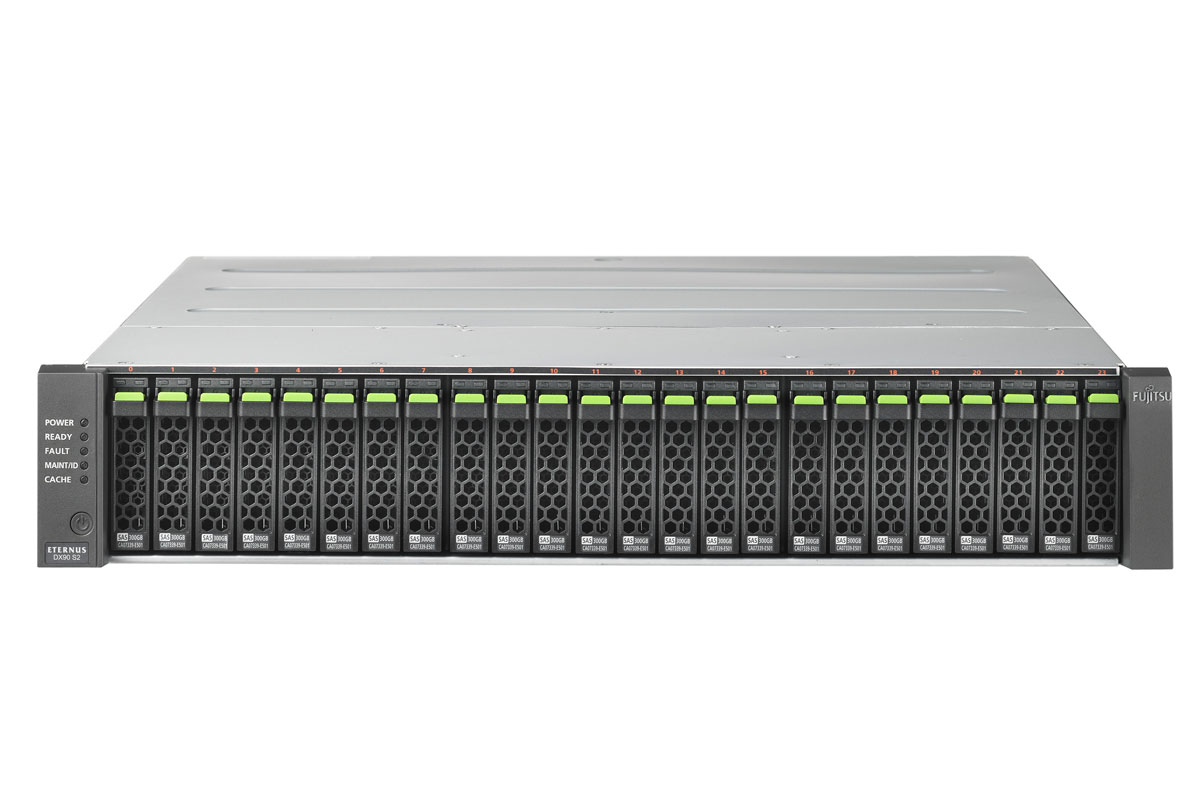
The front of the Fujitsu Eternus DX90 S2
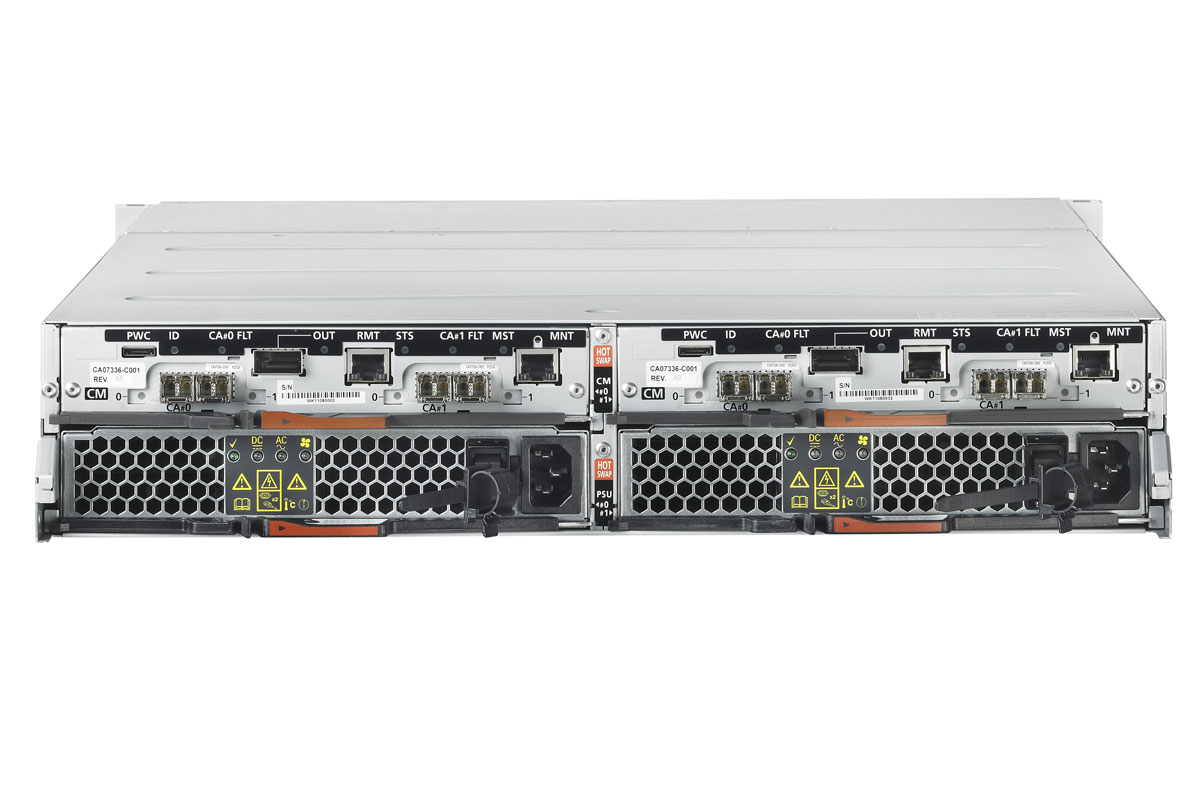
The rear of the Fujitsu Eternus DX90 S2
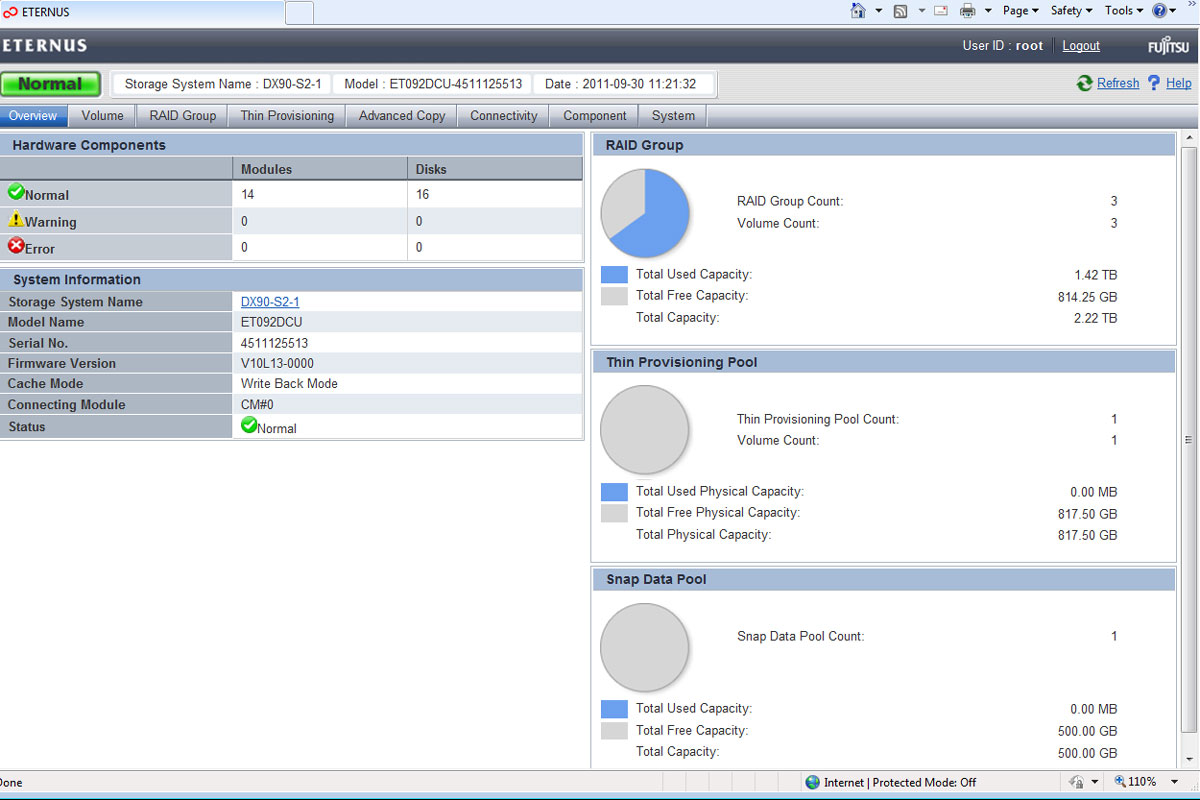
The web interface for the DX90 S2 has been spruced up and provides good access to all storage features.
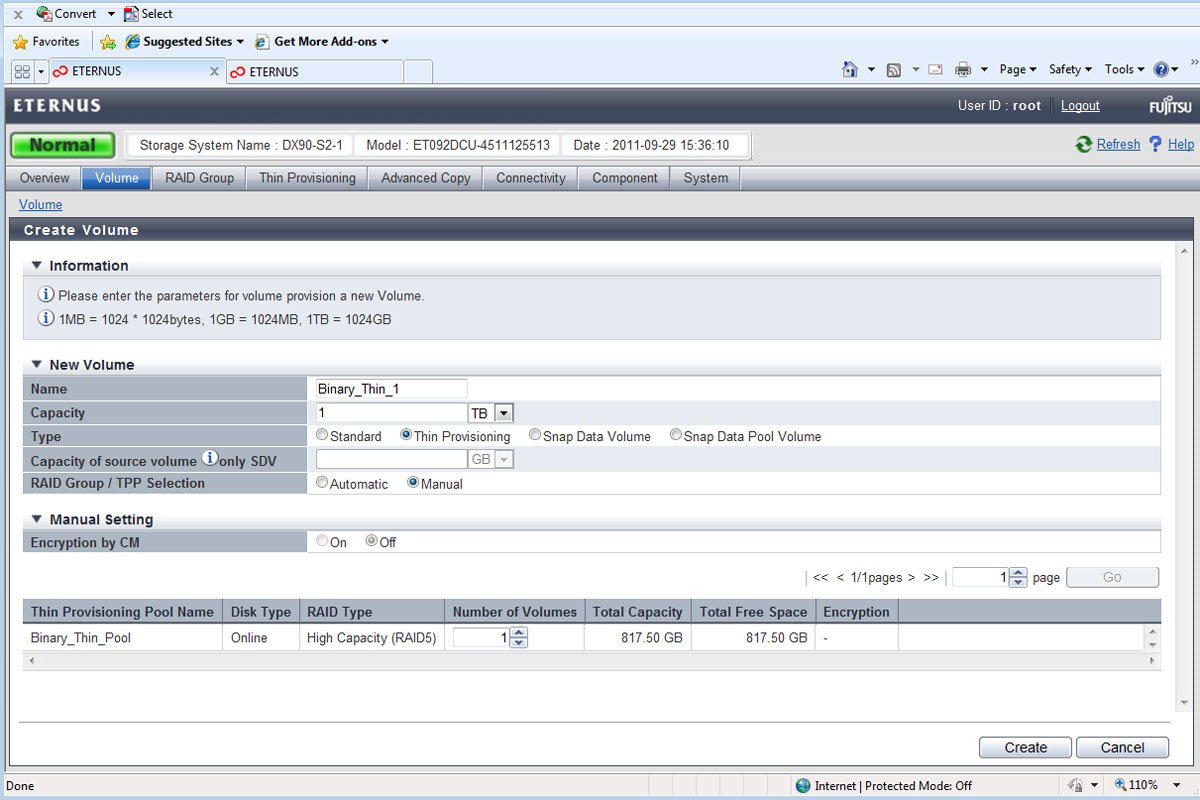
Thin provisioning has been missing from the Eternus arrays for too long, but is now an optional feature.
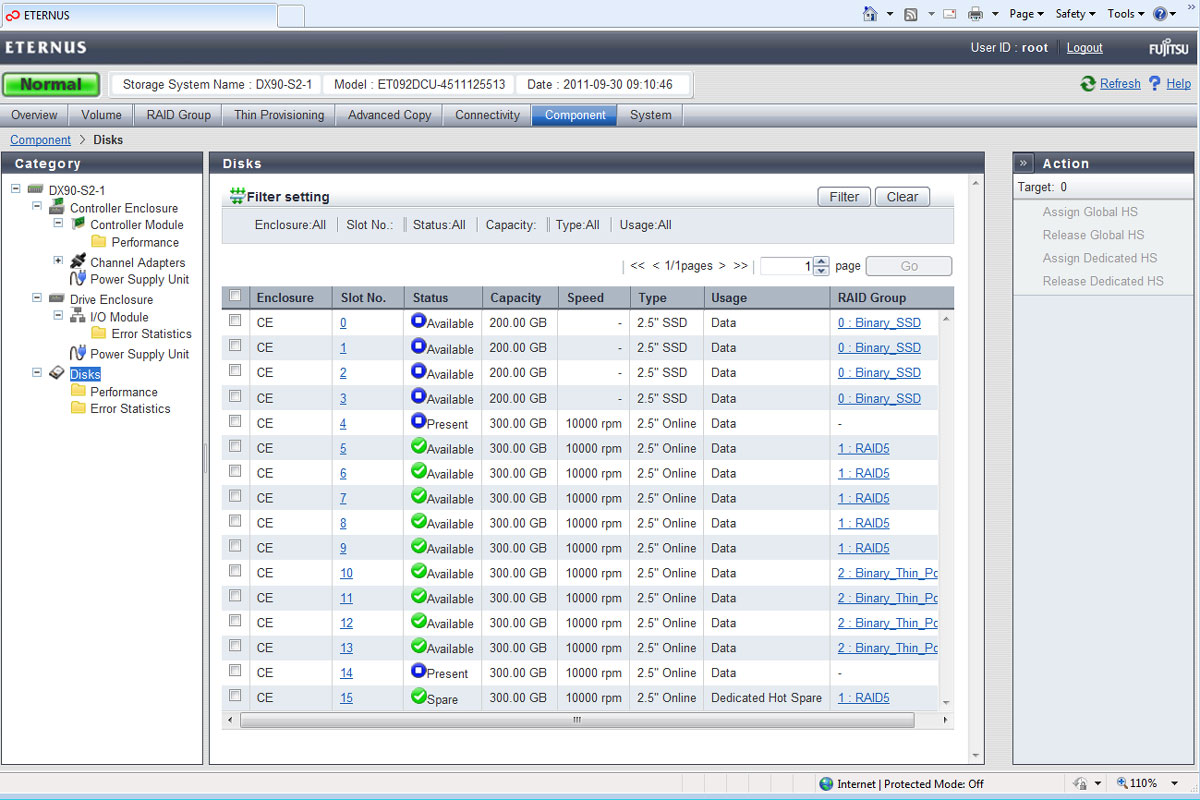
Our review system came with an impressive storage package which included four 200GB SSDs and twelve 300GB SAS disks per chass
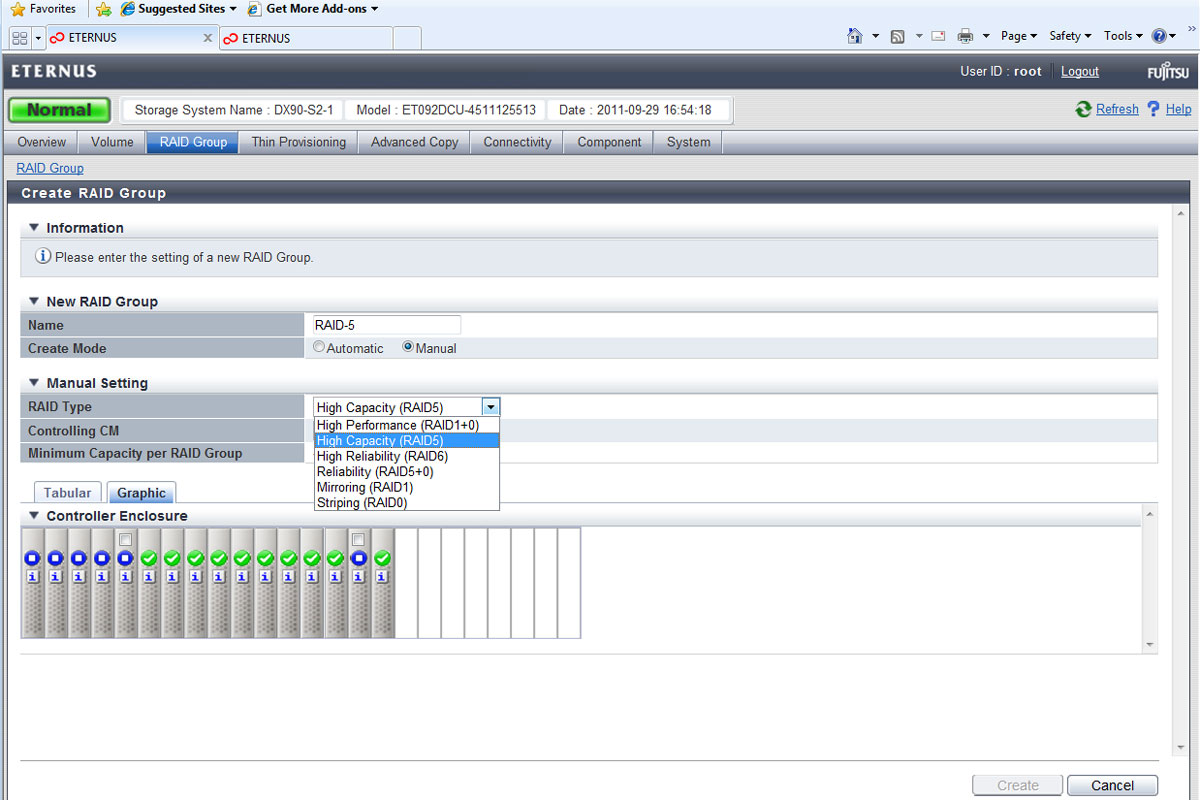
A good range of RAID array types are supported and each array can contain multiple volumes.
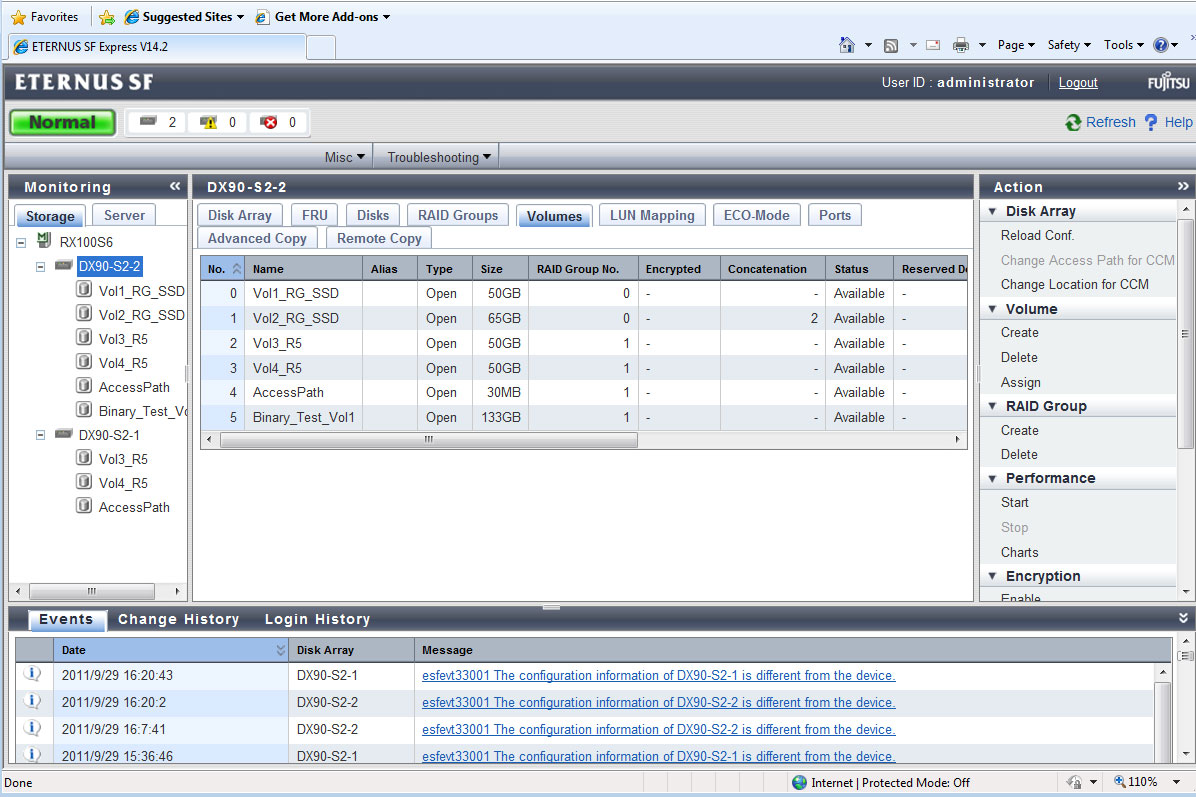
The REC feature mirrors data across separate arrays, but needs the additional SF Express software to configure and manage thi

At its foundation, the DX90 S2 uses a 2U head unit with single or dual RAID controllers with the latter run in active/active mode. The hard disk backplanes are now connected over a high-speed PCI Express 2.0 bus and cache memory has been doubled to 8GB of DDR3.
The controller units are available with 12 3.5in or 24 2.5in drive bays and you can pick and choose from 6Gbit/s near-line SAS, SAS and SSDs. Storage expansion has been doubled as nine disk expansion shelves are supported and up to 240 2.5in drives. For interfaces, you can choose from 6Gbit/s SAS, Gigabit or 10-Gigabit Ethernet IP SAN, 8Gbit/s FC and even 10GbE FCoE and mix different types of modules in the same RAID controller.

We were supplied with two separate head units each with dual RAID controllers all fitted with two 8Gbit/s FC interfaces. This setup allowed us to look at Fujitsu's new Remote Equivalent Copy (REC) feature which mirrors data between appliances in primary and secondary sites for disaster recovery. Each chassis was also each supplied with four 200GB Stec ZeusIOPS SSDs and twelve 300GB SAS2 SFF hard disks. These are included in the price we've shown making this system very good value.
The web interface has a quick start wizard for creating RAID groups. You can create multiple volumes within an array where each one is assigned a LUN and then mapped to selected interface ports. You can allow unrestricted host access to LUNs or use affinity groups which combine multiple volumes and only permit selected hosts to access them over specific ports.
Get the ITPro daily newsletter
Sign up today and you will receive a free copy of our Future Focus 2025 report - the leading guidance on AI, cybersecurity and other IT challenges as per 700+ senior executives
Dave is an IT consultant and freelance journalist specialising in hands-on reviews of computer networking products covering all market sectors from small businesses to enterprises. Founder of Binary Testing Ltd – the UK’s premier independent network testing laboratory - Dave has over 45 years of experience in the IT industry.
Dave has produced many thousands of in-depth business networking product reviews from his lab which have been reproduced globally. Writing for ITPro and its sister title, PC Pro, he covers all areas of business IT infrastructure, including servers, storage, network security, data protection, cloud, infrastructure and services.
-
 CyberOne appoints Microsoft’s Tracey Pretorius to its advisory board
CyberOne appoints Microsoft’s Tracey Pretorius to its advisory boardNews The threat intelligence leader will provide strategic guidance to CyberOne’s executive team
By Daniel Todd Published
-
 CISA issues warning in wake of Oracle cloud credentials leak
CISA issues warning in wake of Oracle cloud credentials leakNews The security agency has published guidance for enterprises at risk
By Ross Kelly Published
-
 Reports: White House mulling DeepSeek ban amid investigation
Reports: White House mulling DeepSeek ban amid investigationNews Nvidia is caught up in US-China AI battle, but Huang still visits DeepSeek in Beijing
By Nicole Kobie Published